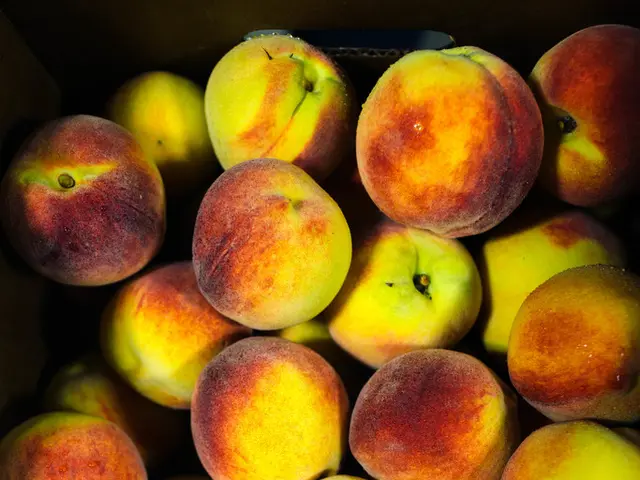Foods that Enhance Weight Loss with Ozempic and Those That Inhibit It:
In recent times, the medication Ozempic (semaglutide) has emerged as a popular choice for managing type 2 diabetes and promoting weight loss. However, to get the most out of this treatment, it's essential to understand how diet can complement its effects.
Firstly, alcohol should be consumed with caution while on Ozempic. Not only does alcohol have a high calorie content, which may not be beneficial for weight loss, but it can also lower tolerance, making it advisable to drink more mindfully.
When it comes to supporting weight loss with Ozempic, the focus should be on high-fibre foods, lean proteins, healthy fats, and low-glycemic foods. High-fibre foods, such as leafy greens, carrots, broccoli, apples, berries, oranges, oats, and whole grains, slow digestion and prolong feelings of fullness, enhancing Ozempic's effect of delaying stomach emptying. Beta-glucan-rich foods like oats and barley can even boost natural GLP-1 hormone production and aid weight loss.
Lean proteins, such as chicken, fish, eggs, and plant-based options like lentils, tofu, edamame, tempeh, and beans, stabilize blood sugar and support muscle maintenance. Healthy fats from avocados, nuts, seeds, and olive oil provide sustained energy without causing blood sugar spikes.
Low-glycemic foods, like sweet potatoes and non-starchy vegetables, prevent rapid blood sugar rises, which helps with metabolic control and reducing side effects. Experts also emphasize the importance of colourful vegetables to supply a range of beneficial phytonutrients.
On the other hand, processed and fried foods should be limited or avoided altogether. These can worsen side effects like nausea from semaglutide and offer little nutritional benefit. High-sugar and refined carbohydrate foods should also be reduced, as they cause blood sugar spikes that counteract Ozempic's benefits and may impede weight loss progress.
To maximise weight loss with Ozempic, it's recommended to combine medication with a balanced diet rich in whole foods, lean proteins, and fiber. Regular physical activity, including strength training, is also crucial to preserve muscle mass and boost fat loss. Prioritising protein intake at meals since appetite is reduced ensures nutrient needs are met despite eating less.
In summary, pairing Ozempic with a diet rich in high-fibre, lean proteins, healthy fats, and low-glycemic foods—while avoiding processed, fried, and high-sugar foods—can optimise weight loss and minimise side effects. Including beta-glucan rich foods may also naturally support GLP-1 activity, further complementing treatment.
For more information, readers are encouraged to explore the links provided, including articles on the potential additional benefits of oats and the suitability of Ozempic for various individuals. To submit questions, readers can email us at questions@our website, or message our Facebook, X, or Instagram pages.
- To enhance the benefits of Ozempic, it's crucial to be mindful of alcohol consumption due to its high calorie content and potential impact on tolerance.
- High-fibre foods, such as leafy greens, berries, oats, and whole grains, should be incorporated into the diet, as they slow digestion, prolong feelings of fullness, and boost natural GLP-1 hormone production.
- A balanced diet with an emphasis on lean proteins like chicken, fish, and plant-based options, healthy fats from avocados, nuts, seeds, and olive oil, and low-glycemic foods can prevent rapid blood sugar rises and improve weight management.
- To maximize weight loss, combine Ozempic medication with regular physical activity, a diet rich in whole foods, and prioritizing protein intake at meals to ensure nutrient needs are met while appetite is reduced.








